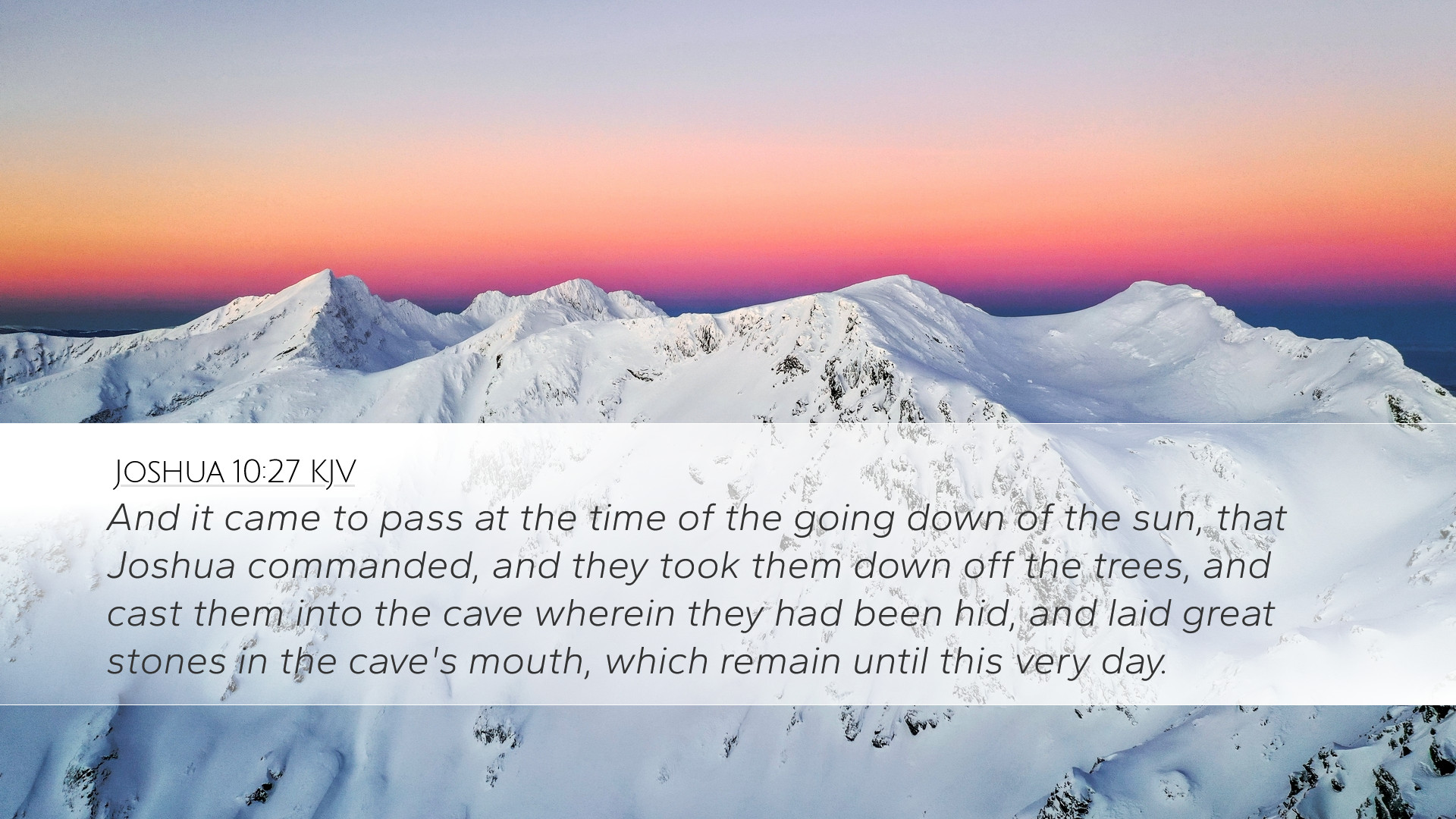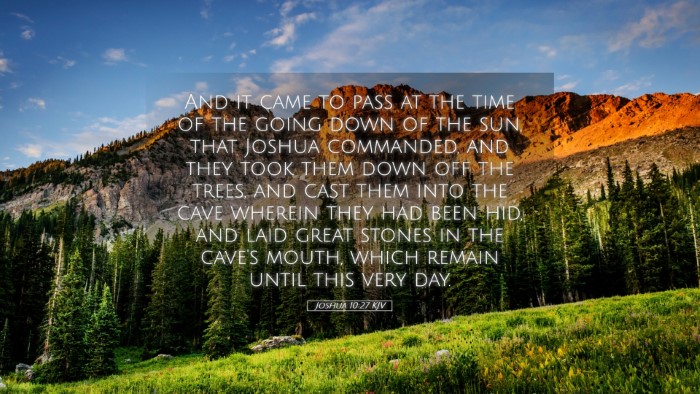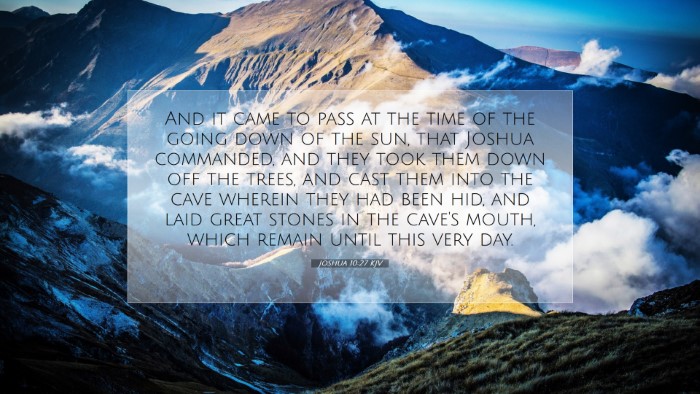Commentary on Joshua 10:27
Joshua 10:27 reads: "And it came to pass at the time of the going down of the sun, that Joshua commanded, and they took them down off the trees, and cast them into the cave wherein they had been hid, and laid great stones in the cave's mouth, which remain unto this very day."
Contextual Overview
This passage occurs during the Israelite conquests in Canaan, particularly in the context of the battle against the five Amorite kings who had formed a coalition against Israel. Joshua had achieved a significant victory, aided by divine intervention, as illustrated through the miraculous events of the day extending into the night (Joshua 10:12-14). The retrieval and execution of the captured kings symbolize not only completeness in victory but also a fulfillment of God’s purposes through His chosen leader, Joshua.
Insight from Matthew Henry
Matthew Henry emphasizes the gravity of the fate that befell these kings, acknowledging that their execution on trees served as a public display of Israel's triumph over their enemies. He notes that:
- This act highlights God's justice in dealing with the enemies of His people, answering the prayers and the needs of Israel by eliminating threats.
- Henry further remarks on the importance of this day in Israel's history, marking it with divine favor and a clear sign of God's sovereignty over the nations gathered against Israel.
Views from Albert Barnes
Albert Barnes provides an organizational breakdown of the events, emphasizing the ceremonial aspect of the execution. He states that:
- The exposure of the kings' bodies was a warning to those who opposed God and His people.
- The reference to the setting sun not only serves as an indicator of time but also symbolizes the end of the kings' rule and their strength against Israel.
- Barnes further explores the significance of the cave as a place of sealing the fate of these kings, marking their demise and further legitimizing Joshua's authority.
Reflections from Adam Clarke
Adam Clarke provides theological reflections on this narrative, emphasizing the lessons that can be gleaned regarding God’s justice and mankind's accountability. Clarke notes that:
- The act of casting the kings into a cave with great stones serves as a metaphor for divine judgment and the finality of death.
- Clarke highlights the importance of the undertaking to remove the bodies from the trees — an act of respect for the dignity of human life, even in defeat.
- Moreover, he points to the term "great stones" as indicative of the permanence of these judgments and how they echo through history particularly in the context of God’s covenant with Israel.
Theological Implications
The implications of Joshua 10:27 extend beyond mere historical narrative; they invite reflection on themes pertinent to pastoral and scholarly discussions:
- Divine Justice: The passage illustrates God's justice in responding to the sin and rebellion against Him. The punishment of the kings serves to remind believers of the consequences of opposing God's will.
- Remembrance: By mentioning that the stones remain to this day, it invites reflection on the importance of remembering God's deliverance and the consequences faced by those who turn against Him.
- Authority and Leadership: Joshua's decisive actions reflect on the qualities of spiritual leadership, emphasizing the necessity for boldness and commitment to divine commands in fulfilling God-given missions.
Practical Applications
For contemporary believers, the rich content of this verse serves as a guide in several ways:
- Covenantal Faithfulness: The act of Joshua reflects a commitment to God’s covenant; believers today are called to uphold their covenant with God, remaining faithful to His commands.
- Accountability to God: The finality of the kings’ fate is a reminder of the ultimate accountability each person has before the Creator.
- Hope and Assurance: Just as Joshua led his people through battles marked by God's favor, believers can find assurance in God’s involvement in their struggles.
Concluding Thoughts
Joshua 10:27 encapsulates profound theological themes through historical events involving divine justice, accountability, and transformative leadership. Insights from Matthew Henry, Albert Barnes, and Adam Clarke enrich our understanding, providing a foundation for meaningful reflection and application in modern faith contexts. This passage not only recounts history but also serves as a timeless reminder of God's sovereignty and the moral imperatives faced by those who dare to oppose Him.


